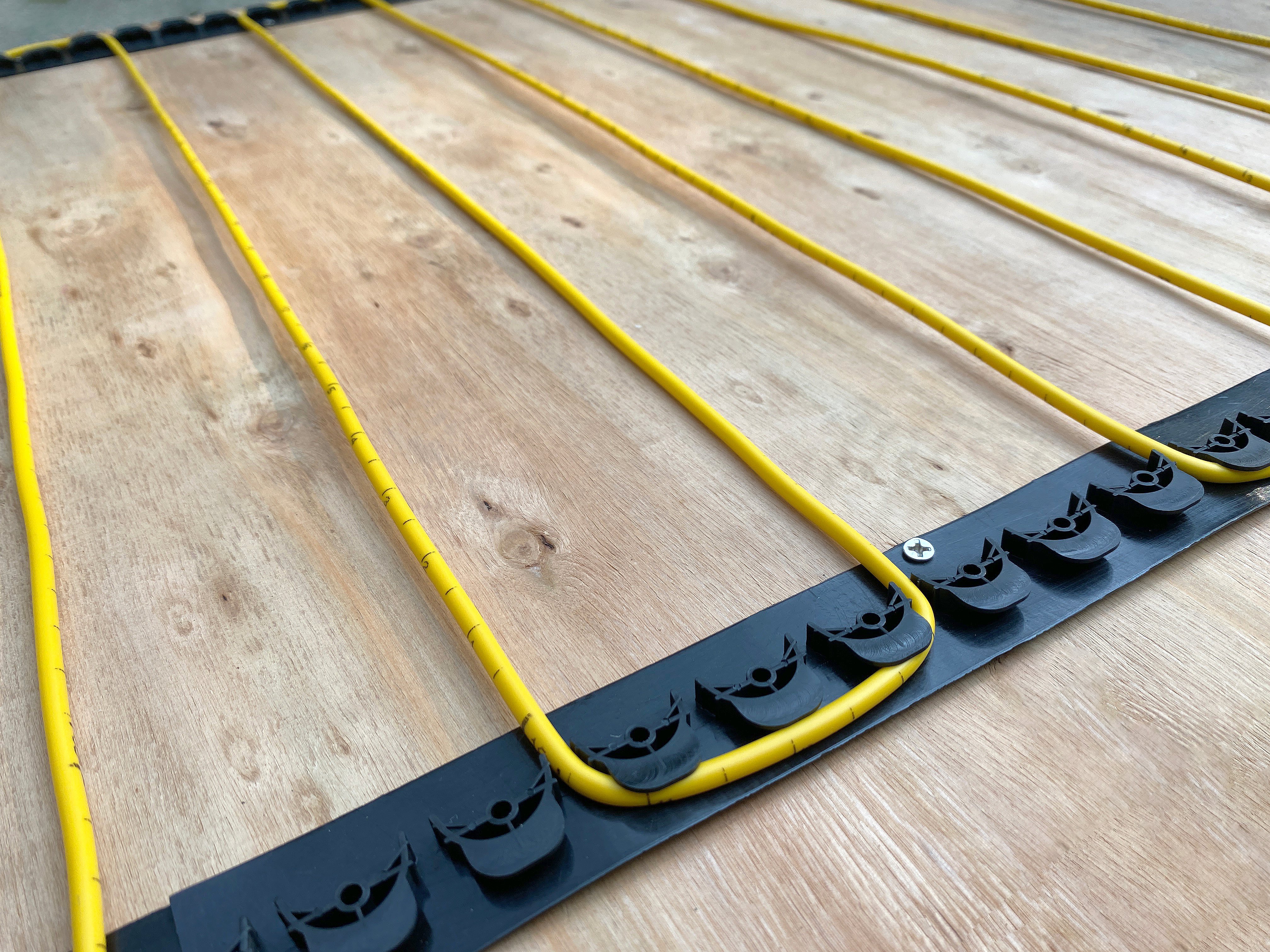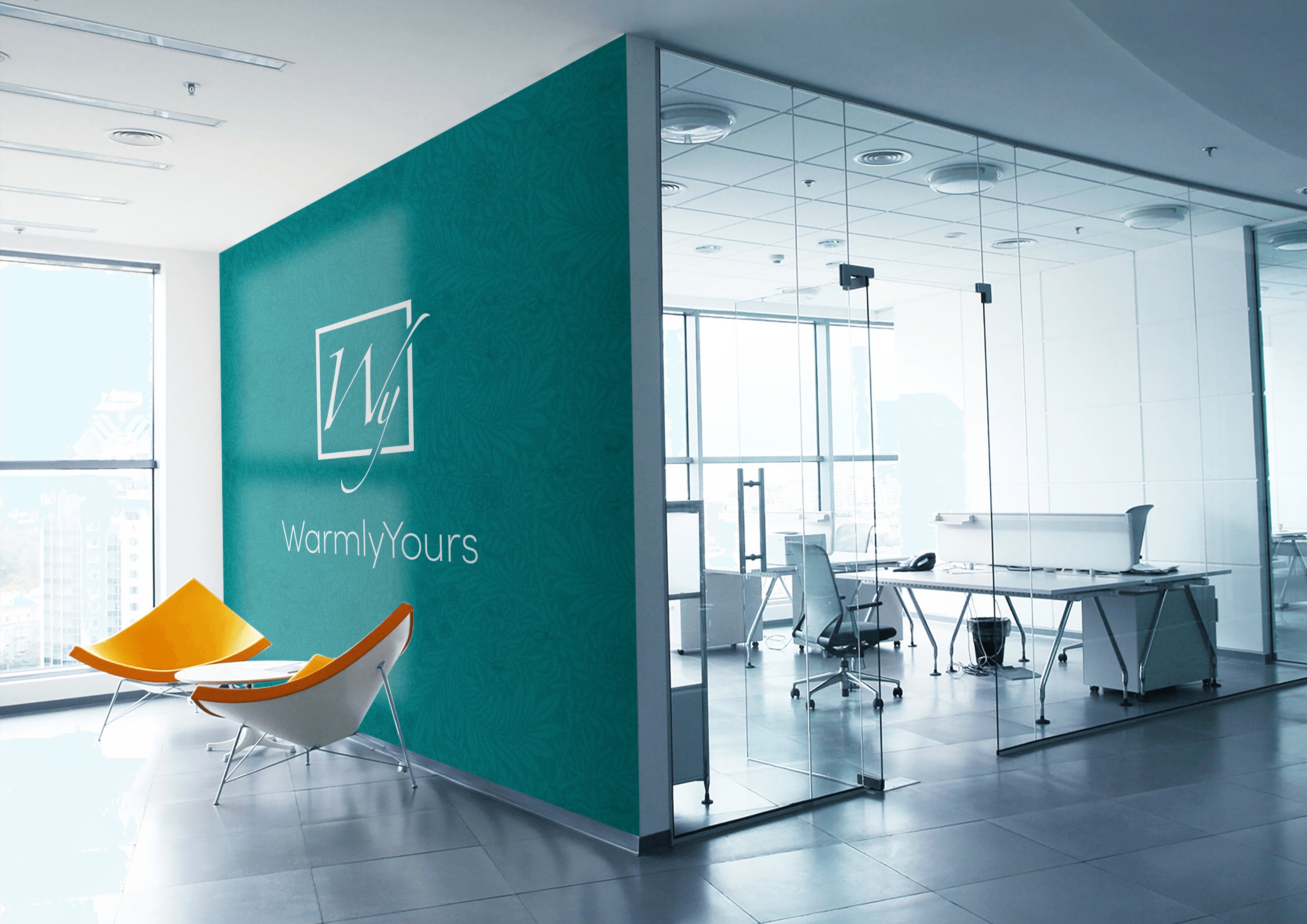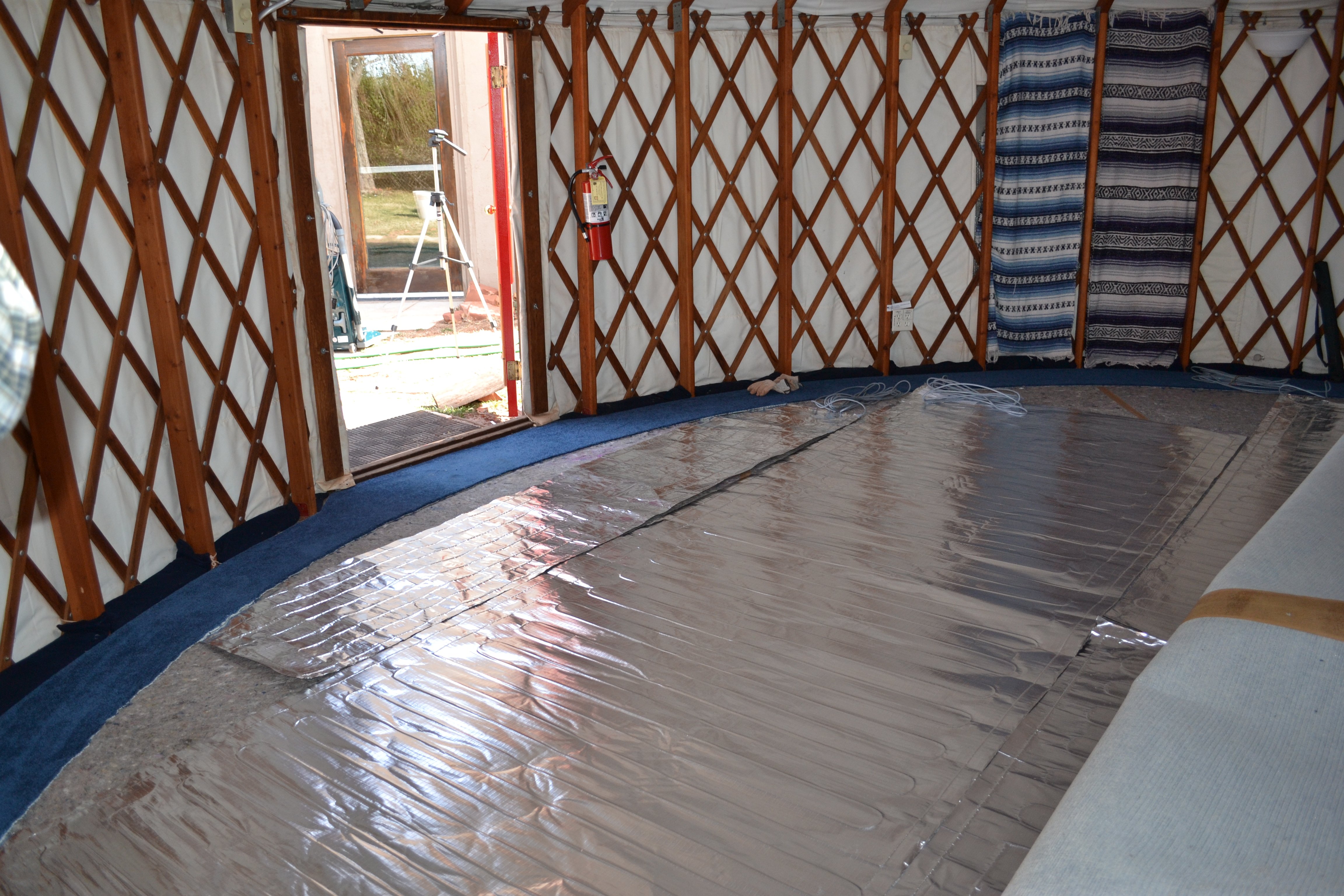
In This Article
- Electric vs. Hydronic: A Clear Advantage for Your Project
- Retail Spaces and Showrooms: Enhancing the Customer Experience
- Office Buildings and Workspaces: Boosting Employee Comfort and Productivity
- Hotels and Hospitality: The Ultimate Guest Comfort
- Healthcare Facilities: Hygiene and Patient Well-being
- Frequently Asked Questions Commercial Floor Heating
When you think of electric radiant floor heating, your mind likely goes straight to a cozy bathroom or a warm kitchen in a residential setting. And while it excels there, the truth is, the benefits of electric floor heating extend far beyond the comfort of a single-family home. Forward-thinking architects, developers, and business owners are increasingly incorporating these systems into a diverse range of commercial projects, transforming spaces and enhancing the experience for clients, customers, and employees alike.
At WarmlyYours, we've seen firsthand how our electric floor heating systems can provide efficient, comfortable, and aesthetically pleasing heating solutions for various commercial applications. But before we dive into those, it's helpful to understand the key differences between the two main types of radiant heating.
Electric vs. Hydronic: A Clear Advantage for Your Project
There are two primary types of radiant floor heating systems: electric and hydronic.
- Hydronic systems use heated water that is pumped through a network of PEX tubing underneath the floor. This type of system requires a boiler, a manifold, and dedicated plumbing, making it a more complex and often more expensive option to install. Hydronic systems are typically used for heating entire buildings or large, multi-story projects from the ground up.
- Electric systems use heating cables, mats, or grids that are installed directly under the flooring and are powered by electricity. They are simpler, more flexible, and do not require a boiler, pipes, or a significant mechanical room.
While hydronic systems are ideal for large-scale, whole-building heating, electric radiant heating offers a significant advantage for most commercial renovation and targeted heating projects due to its unique characteristics:

- Zonal Heating and Precise Control: Electric systems excel at heating specific, smaller areas. For a hotel lobby, a retail showroom, or a single office bathroom, an electric system can be installed quickly and cost-effectively to provide heat only where it's needed, without affecting the building's central HVAC.
- Ideal for Retrofits and Remodels: Electric heating systems have a minimal profile, adding only a fraction of an inch to the floor height. This makes them perfect for commercial renovation projects where floor heights and complex plumbing are major concerns.
- Simplified Installation: The installation process for electric systems is faster and less disruptive. It eliminates the need for a boiler, pumps, and extensive plumbing, which can save valuable time and money during a commercial build-out.
- Low to No Maintenance: Once installed, electric radiant heating systems are virtually maintenance-free. There are no moving parts, no pumps to service, and no boilers to maintain, providing a reliable and worry-free solution for busy commercial properties.
Now, let’s explore some specific ways these systems are being integrated into the commercial world.
Retail Spaces and Showrooms: Enhancing the Customer Experience
Imagine stepping into a high-end boutique or an auto showroom where the floors are consistently warm, even on the coldest days. This subtle comfort immediately elevates the customer experience.
- Luxurious Ambiance: Radiant heat creates a premium feel, encouraging customers to linger longer and feel more comfortable while browsing. This is particularly effective in spaces with hard flooring like tile, stone, or polished concrete.
- Energy Efficiency: For large open spaces, traditional forced-air systems can be inefficient, leading to uneven temperatures. Floor heating provides consistent warmth from the ground up, often at a lower thermostat setting, leading to energy savings.
- Design Freedom: With no bulky vents or radiators, electric floor heating offers complete design flexibility, allowing for unobstructed displays and a clean, modern aesthetic.
Office Buildings and Workspaces: Boosting Employee Comfort and Productivity

Employee comfort directly impacts productivity and satisfaction. Cold office floors, especially near windows or entrances, can be a major distraction.
- Even, Silent Heat: Radiant heat warms people and objects directly, providing a consistent, draft-free environment. This silent operation is ideal for focused work areas where noise from HVAC systems can be disruptive.
- Improved Air Quality: Unlike forced-air systems, radiant heating doesn't circulate dust, allergens, or germs, contributing to a healthier indoor environment for employees.
- Zone Heating: Larger office complexes can benefit from zone heating, allowing different areas to be maintained at optimal temperatures based on their specific use and occupancy.
Here’s an office workspace that incorporated radiant floor heating from WarmlyYours.
Hotels and Hospitality: The Ultimate Guest Comfort
Hotels are constantly seeking ways to differentiate themselves and provide an exceptional guest experience. Heated floors are a significant value-add, particularly in bathrooms and entryways.
- Spa-Like Bathrooms: Guests appreciate the luxury of a warm tile floor in their hotel room bathroom, creating a spa-like feel that enhances their stay.
- Inviting Lobbies and Public Areas: Warm floors in hotel lobbies, hallways, and dining areas create a welcoming atmosphere, leaving a lasting positive impression on guests.
- Reduced Energy Costs: For properties with high occupancy, the efficiency of radiant heating can lead to considerable long-term energy savings compared to constantly running traditional heating systems.
This project was an innovative yoga company that held classes in a radiant heated yurt!

Healthcare Facilities: Hygiene and Patient Well-being
In healthcare settings, hygiene and patient comfort are paramount. Electric floor heating offers unique advantages here.
- Hypoallergenic: By eliminating air circulation associated with forced air, radiant heating helps reduce the spread of airborne pathogens and allergens, supporting a cleaner environment.
- Quiet Operation: The silent nature of electric floor heating contributes to a calm and quiet atmosphere crucial for patient recovery and staff concentration.
- Gentle Warmth: Providing gentle, consistent warmth, especially in patient rooms or waiting areas, can significantly improve comfort and well-being.
Here’s a healthcare facility that incorporated WarmlyYours floor heating.
Frequently Asked Questions Commercial Floor Heating
What are the benefits of electric floor heating for commercial spaces?
Electric floor heating provides consistent, even warmth while enhancing overall energy efficiency—particularly when used during off-peak hours. It operates quietly, without the noise or airflow of forced-air systems, improving indoor air quality by reducing dust movement. With few mechanical components, it requires little maintenance and allows for flexible zoning control, making it an ideal choice for offices, retail stores, hospitality, and healthcare environments where comfort and cost control are priorities.
Does electric floor heating significantly increase operating costs in commercial buildings?
Although electric systems do consume energy, their efficiency and controllability help keep operational costs manageable. Many commercial installations use smart thermostats and automated energy management systems to ensure heat is provided only when necessary. Over time, any additional energy use is often balanced out by improved occupant comfort, reduced maintenance expenses, and precise temperature regulation.
How can electric floor heating be used effectively in large commercial areas?
In expansive commercial settings, modular control solutions—such as the nJoin 2.0 power module—allow a single thermostat to manage a greater heating area. This approach maintains precise temperature control while extending the coverage of your radiant heating system, offering both scalability and efficiency without compromising comfort.
Is electric floor heating compatible with all commercial flooring types and applications?
Electric floor heating integrates well with a wide range of commercial flooring materials, including tile, stone, engineered wood, polished concrete, and certain luxury vinyl or resilient options (when approved for radiant systems). It’s especially effective in high-traffic or comfort-critical spaces like restrooms, lobbies, corridors, and commercial kitchens. Key considerations include subfloor insulation, electrical access, and the thermal characteristics of the flooring material.
How does the maintenance and lifespan of electric floor heating compare between commercial and residential use?
Because electric floor heating has no moving parts or air ducts, maintenance requirements are minimal. In commercial environments, the heating elements are sealed beneath durable flooring materials or concrete slabs, providing long-term protection. Routine upkeep typically involves inspecting thermostats and control systems rather than the heating cables themselves. When installed properly, these systems can deliver dependable performance for decades—often 25 years or more.
From enhancing customer satisfaction to boosting employee productivity and ensuring guest comfort, WarmlyYours electric floor heating solutions offer a sophisticated and sustainable choice for a wide array of commercial projects. Ready to explore how radiant heat can transform your next commercial venture? Contact us today for a custom quote and design.
Have Questions About Your Project?
Our team of Radiant Experts is ready to help!
Stay Updated
Get the latest radiant heating news and tips delivered to your inbox.



